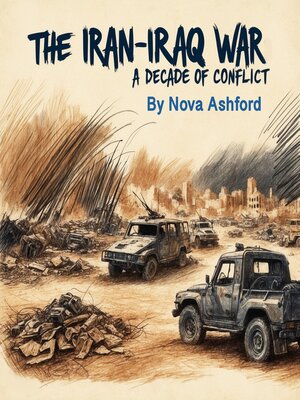
Sign up to save your library
With an OverDrive account, you can save your favorite libraries for at-a-glance information about availability. Find out more about OverDrive accounts.
Find this title in Libby, the library reading app by OverDrive.



Search for a digital library with this title
Title found at these libraries:
| Library Name | Distance |
|---|---|
| Loading... |
The Iran-Iraq War, which raged from 1980 to 1988, was one of the longest and most devastating conflicts of the 20th century. To understand its eruption, one must look back at the complex web of historical grievances, ideological clashes, and strategic calculations that set the stage for war. The roots of the conflict lay not only in territorial disputes and regional rivalry but also in the dramatically shifting political landscapes within both nations.
Iran, under the rule of Shah Mohammad Reza Pahlavi until 1979, had enjoyed a close relationship with the West, particularly the United States. The Shah's regime was modernizing but also increasingly authoritarian, and his reliance on foreign powers alienated large segments of the Iranian population. This discontent culminated in the Islamic Revolution of 1979, which swept Ayatollah Ruhollah Khomeini to power and replaced the monarchy with a theocratic republic. The revolution shocked the region, especially its Sunni neighbors and secular governments, as Iran began exporting its revolutionary ideology and calling for the overthrow of what it labeled as corrupt, un-Islamic regimes.
Iraq, ruled by the secular Ba'ath Party under Saddam Hussein, was especially alarmed. Not only did Iraq share a long and often contentious border with Iran, but it also had a significant Shi'a majority population that Saddam feared could be influenced by Khomeini's message. Additionally, Iraq had longstanding territorial disputes with Iran, particularly over the Shatt al-Arab waterway, a critical channel for oil exports. Saddam believed that post-revolution Iran, weakened by purges and internal strife, presented a unique opportunity for Iraq to assert dominance in the region.







